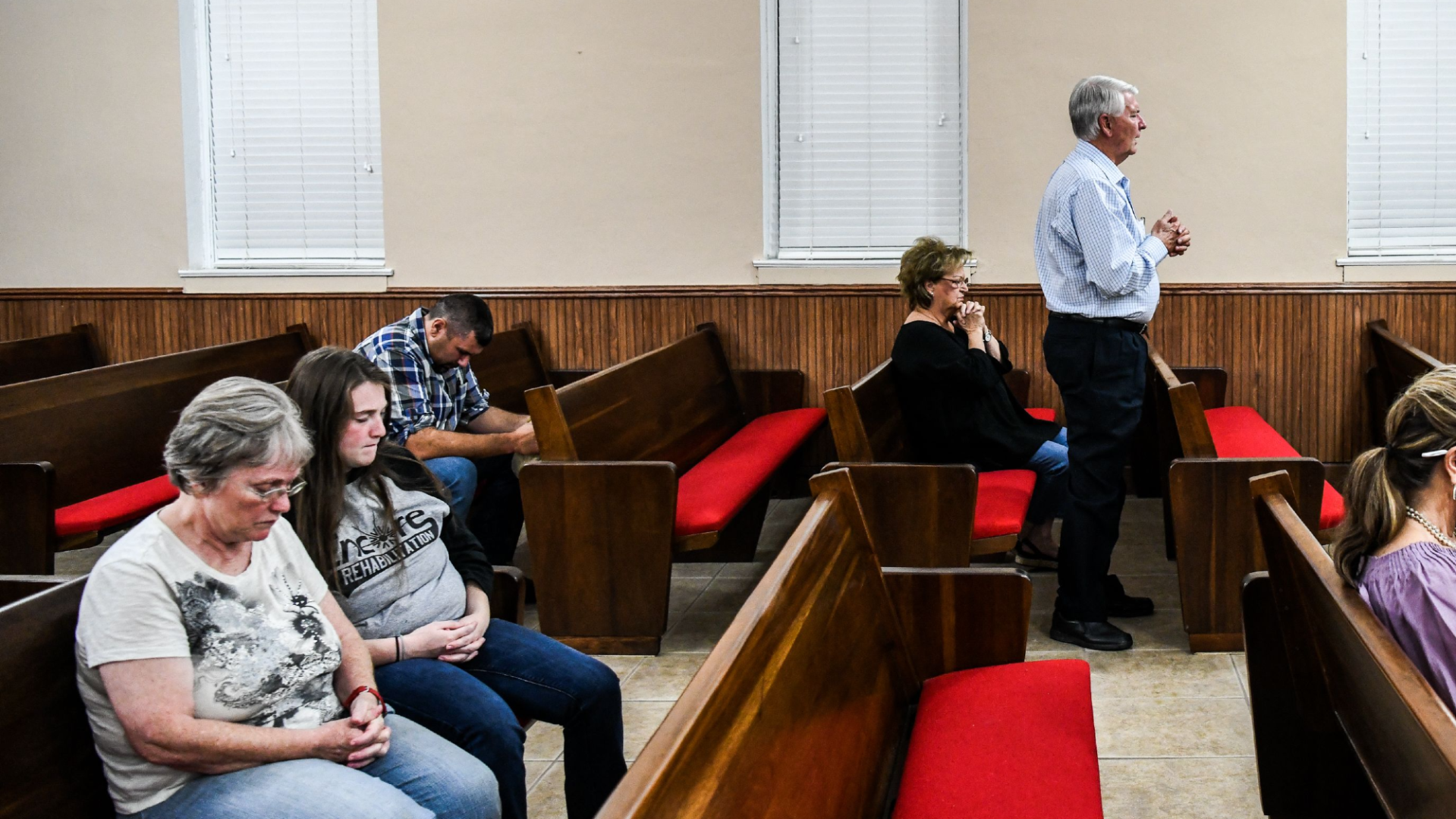The IRS has asked a federal court to reconsider its understanding of what happens at church.
A sermon is like “a family discussion,” the IRS said in a court filing on Monday in Tyler, Texas. And if a pastor endorses a candidate in one of those family discussions, that’s part of “bona fide communications internal to a house of worship.”
A 1954 amendment put forward by Lyndon Johnson when he was a senator prohibits churches and other tax-exempt organizations from getting involved in political campaigns. Until now, the IRS said that a public statement from a church on behalf of a candidate or in opposition to a candidate was a clear violation of the law and “absolutely prohibited.”
In the court filing, the government agency offers a new interpretation, clarifying that statements made in a church are not public.
The IRS now says that, actually, nothing that happens at church or through a church’s “usual channels of communication on matters of faith” can violate the Johnson Amendment. Even a sermon that explicitly tells people in the pews how to vote does not “participate” or “intervene” in a campaign, according to the IRS, at least not “within the ordinary meaning of those words.”
The agency wants the court to settle a lawsuit brought by the National Religious Broadcasters and two evangelical churches in East Texas. The court filing, which was first reported by The New York Times, also notches a political victory for conservative Christians who have long opposed the Johnson Amendment.
Southern Baptist pastor Robert Jeffress once called the law an “assault by government on religious liberty.” Alliance Defending Freedom senior counsel Erik Stanley said it violates pastors’ “right to speak about Biblical truths from the pulpit without fear of punishment.”
Opponents of the Johnson Amendment even encouraged pastors to violate the law in acts of civil disobedience. About 30 churches participated in the first Pulpit Freedom Sunday in 2008. More than 1,800 joined in 2014.
Efforts to repeal the law have not gone anywhere, though. North Carolina congressman Walter B. Jones, a former Southern Baptist who converted to Catholicism in his 30s, proposed overturning the Johnson Amendment several times without success. Oklahoma representative James Lankford, an ordained Southern Baptist minister who served in the House and is now in the Senate, has repeatedly tried as well, but his proposals have died in committee.
Donald Trump embraced the issue during his 2016 run for president as part of his outreach to religious conservatives. Repeal of the Johnson Amendment was added to the Republican Party platform, and vice presidential candidate Mike Pence said it was one of the top reasons Christians should vote for Trump, right after Trump’s promise to appoint conservative Supreme Court justices.
Trump reiterated his commitment after he won, telling the National Prayer Breakfast he would “get rid of and totally destroy the Johnson Amendment and allow our representatives of faith to speak freely and without fear of retribution.”
He tried twice. An early draft of Trump’s signature legislation, the 2017 Tax Cuts and Jobs Act, included language that would allow churches to engage in political activity without jeopardizing their tax-exempt status. It was stripped from the bill during the budget-reconciliation process, however, to allow the senate to pass the legislation without needing a filibuster-proof majority.
Trump also signed an executive order which he said “got rid of” the Johnson Amendment. Legally, however, the order only had the power to direct the Treasury Department to relax enforcement of the law.
The law has not been enforced very often. In more than 70 years, it appears only two churches have lost their tax-exempt status for political activity. One took out newspaper ads opposing Bill Clinton’s bid for the White House in 1992. Another reportedly lost its status in 2012, but details, including the church’s name and purported political activity, are unknown.
In 2022, ProPublica and The Texas Tribune investigated more than a dozen apparent violations of the law and found the IRS had “largely abdicated its enforcement responsibilities.”
Michael Farris, founder of the Home School Legal Defense Association and Patrick Henry College, said the IRS investigated his church, however, during Joe Biden’s time as president.
Farris now serves as general counsel for the National Religion Broadcasters and is part of the litigation team suing the IRS over the Johnson Amendment.
“We’re trying to reinstate the original vision of America where churches could preach the whole counsel of the Word of God and not stop at applying that to the issues that are facing us,” he said in an interview last year. “We think that churches and other nonprofits should be able to freely say whatever they want to say.”
A Lifeway Research study found most Americans don’t want ministers to endorse candidates, but they are more open to it than they used to be. The percentage of Americans who say a political endorsement during a worship service would be appropriate more than doubled between a phone survey in 2008 and an online survey in 2024.












